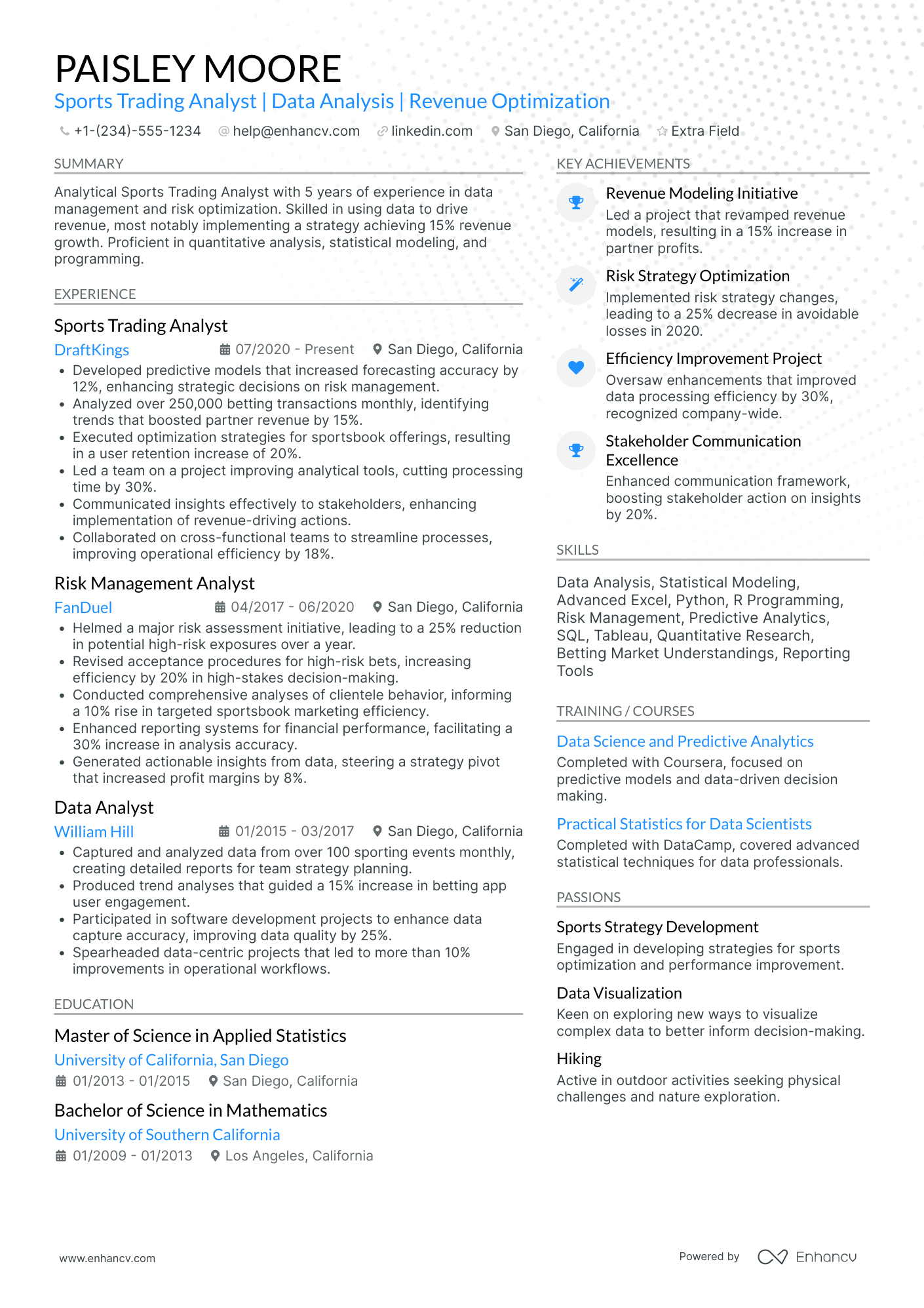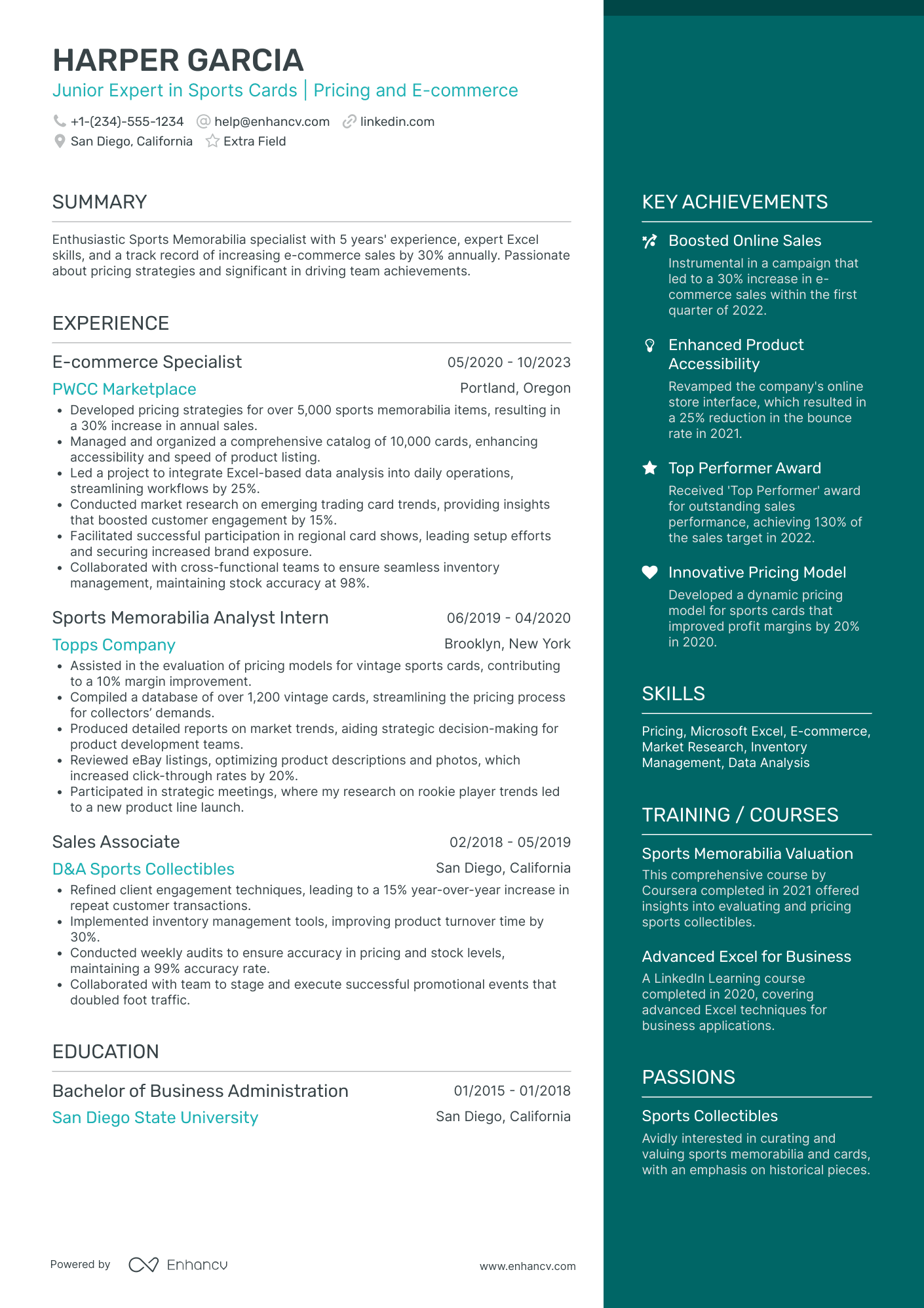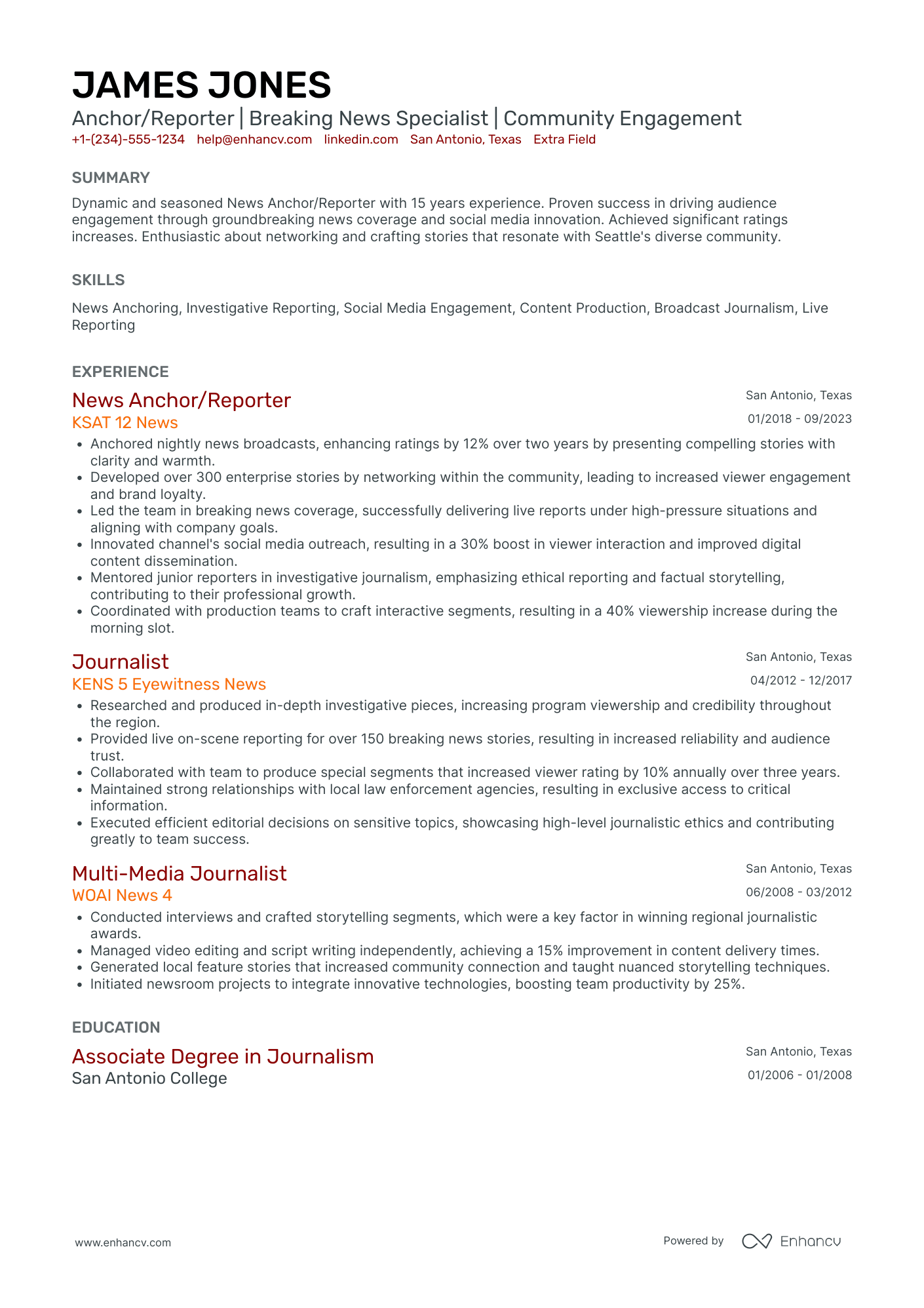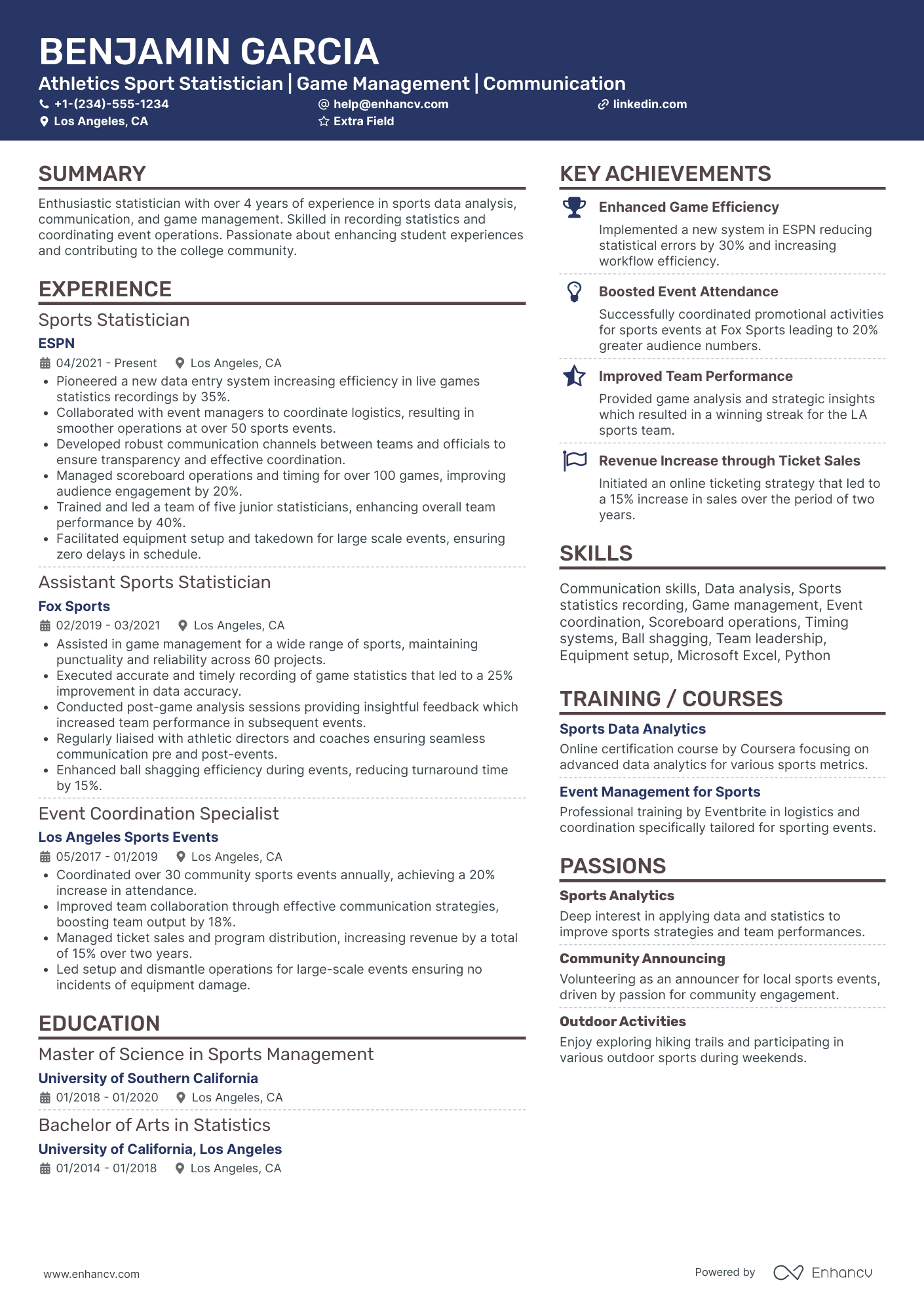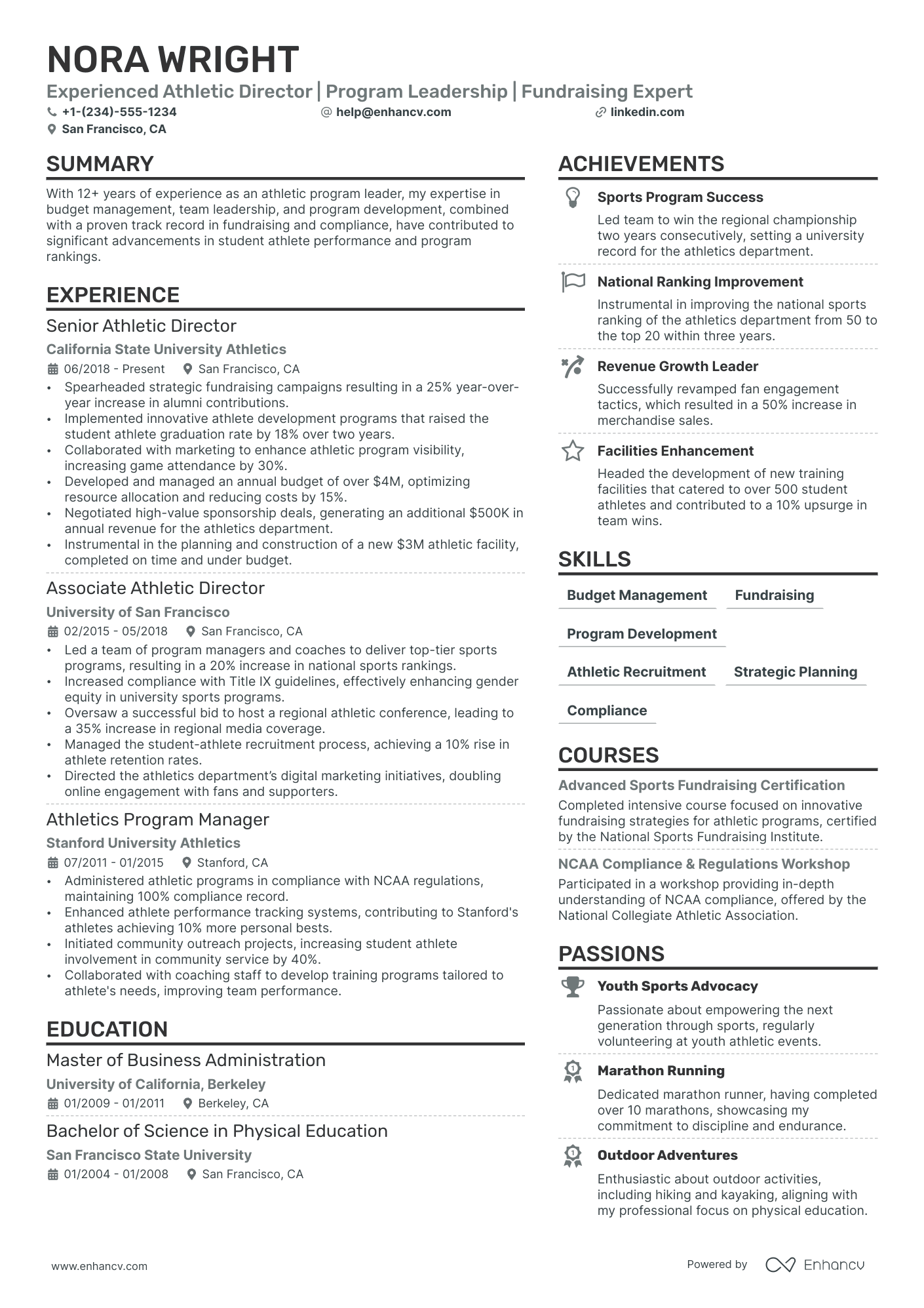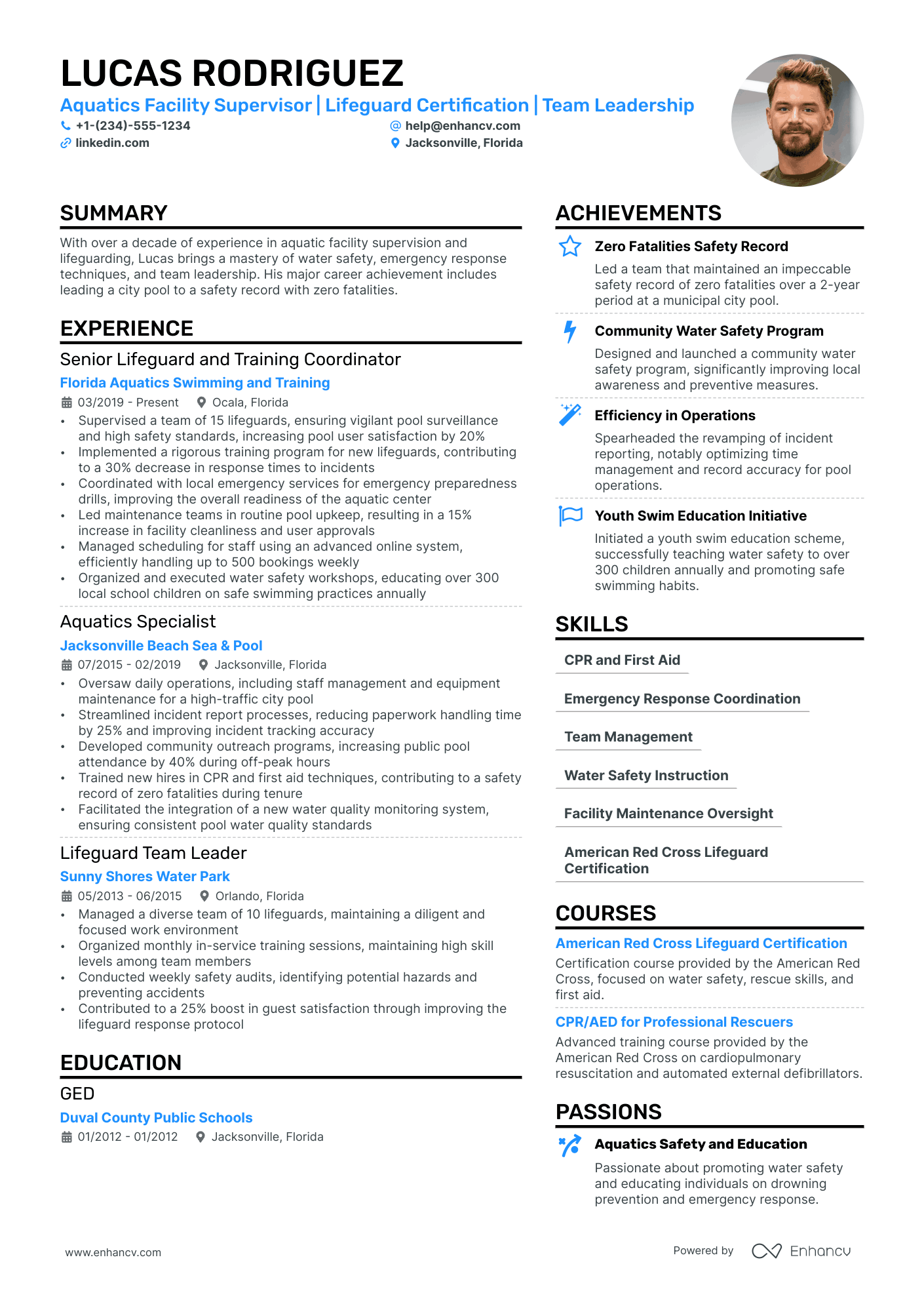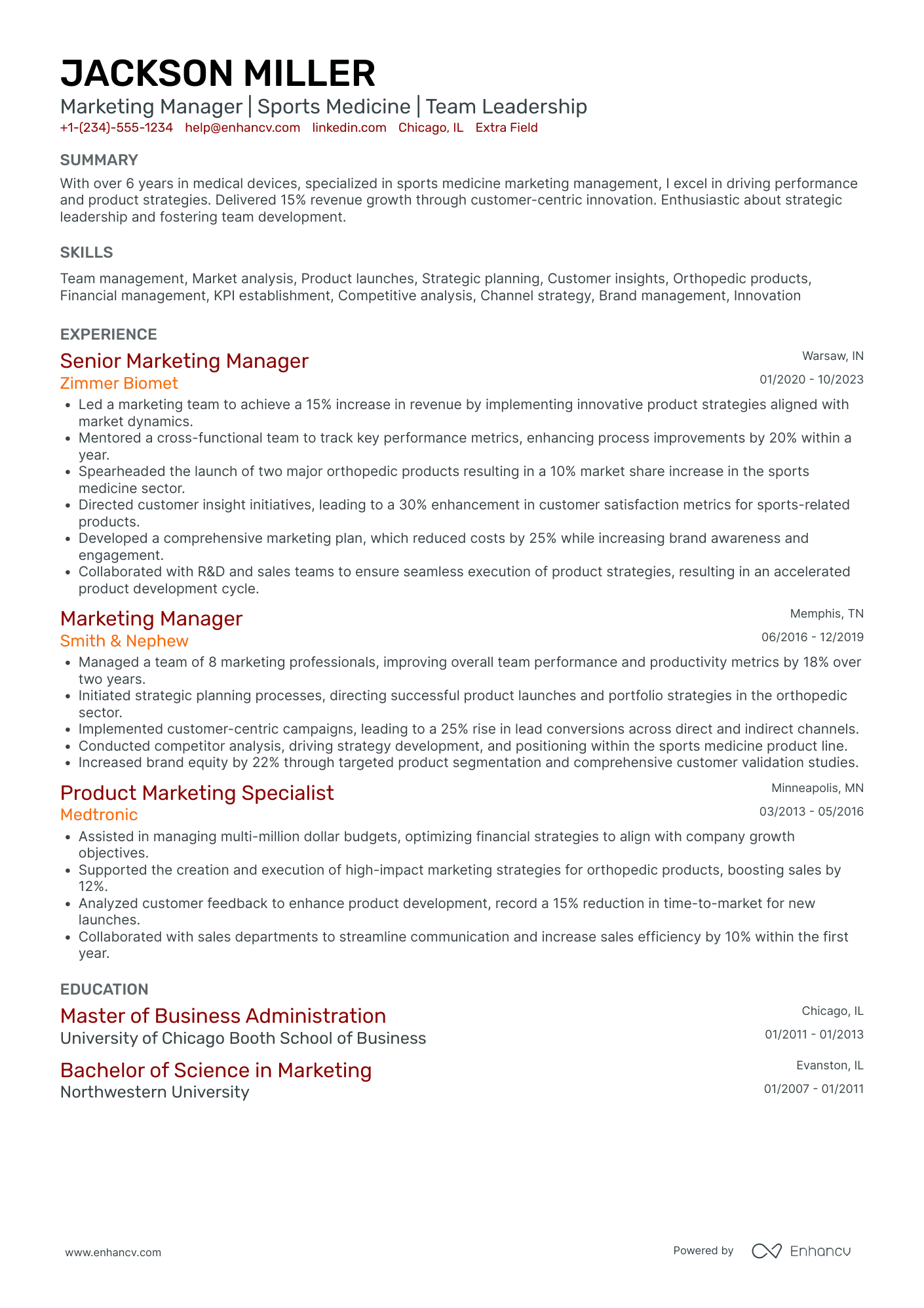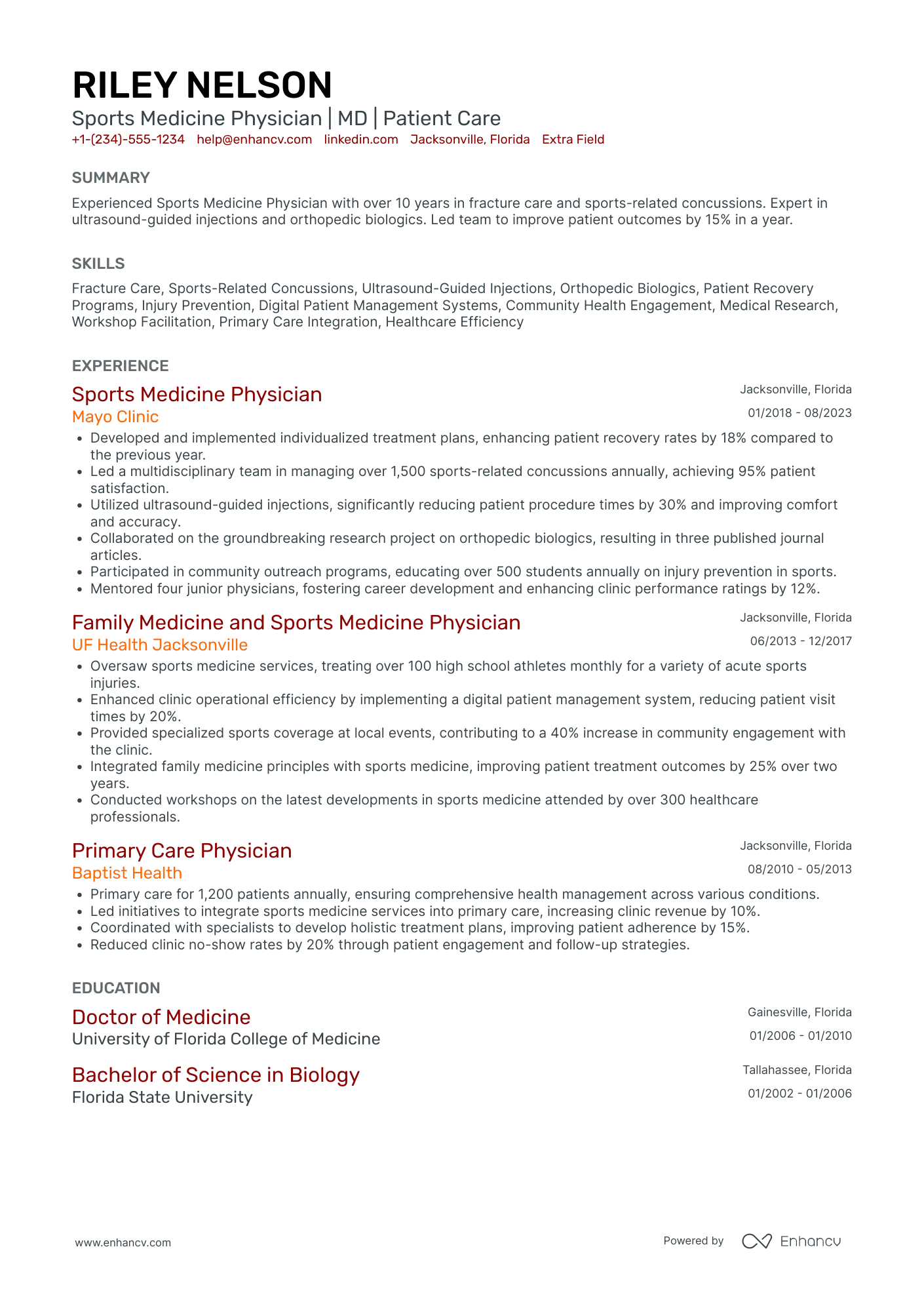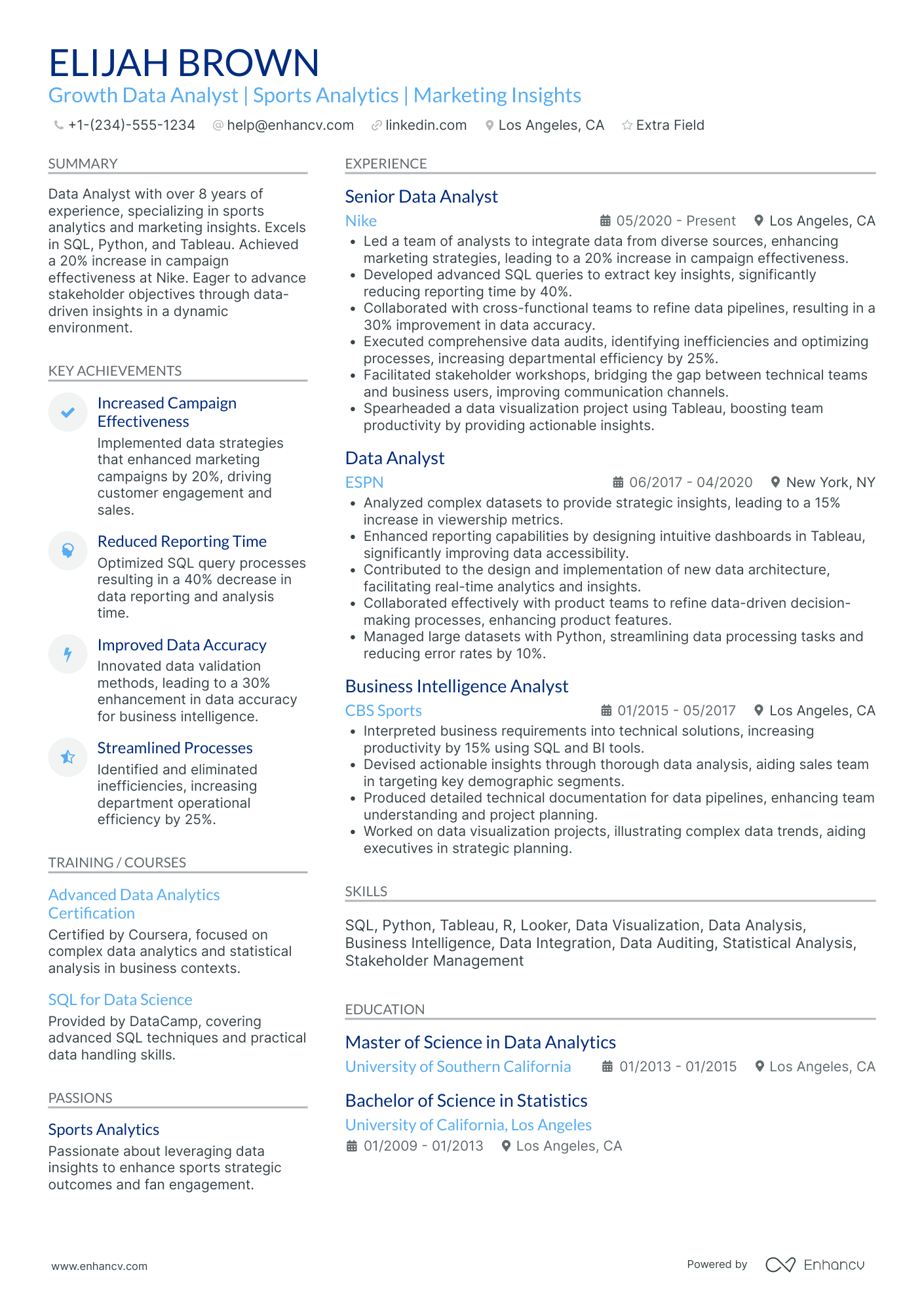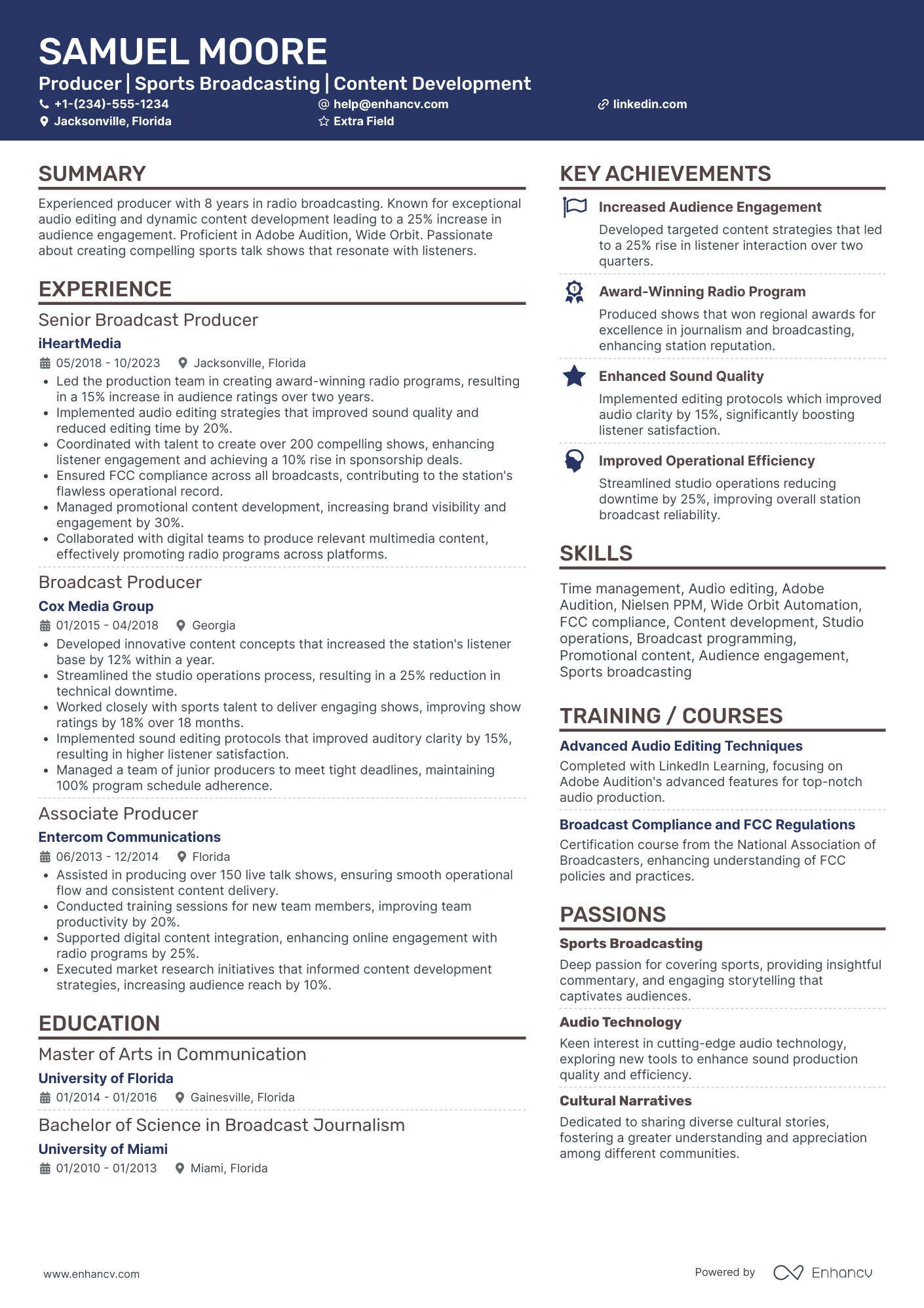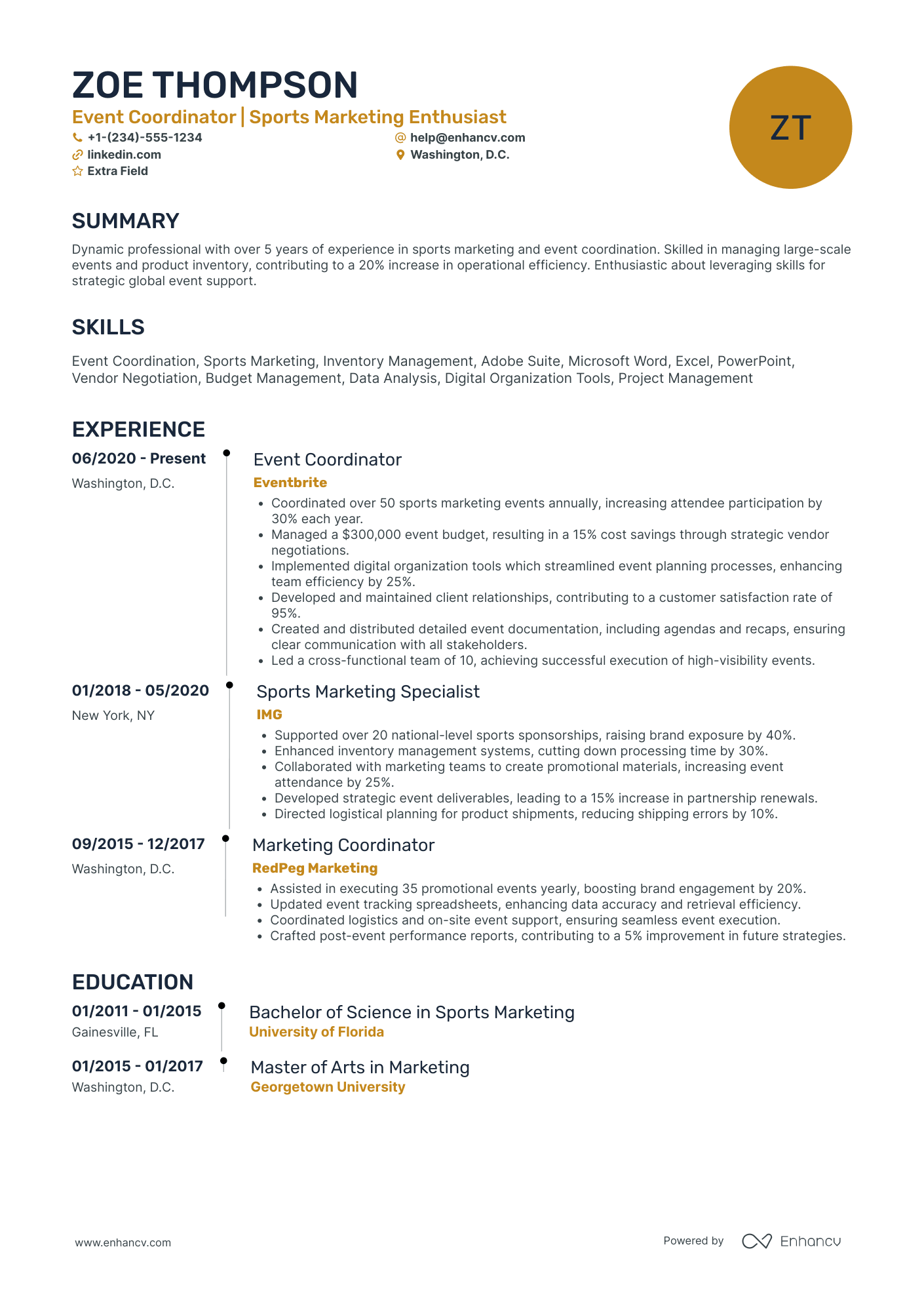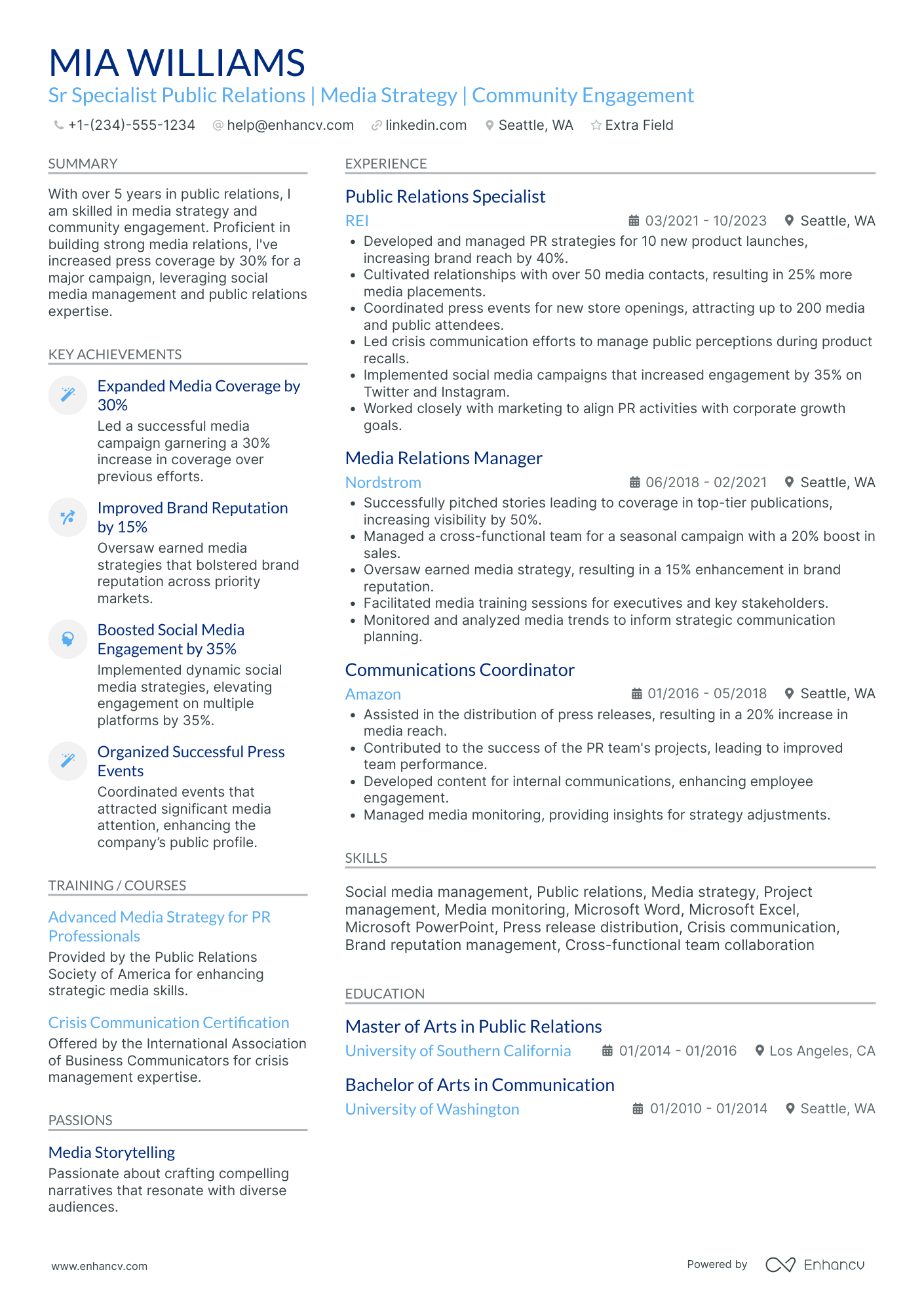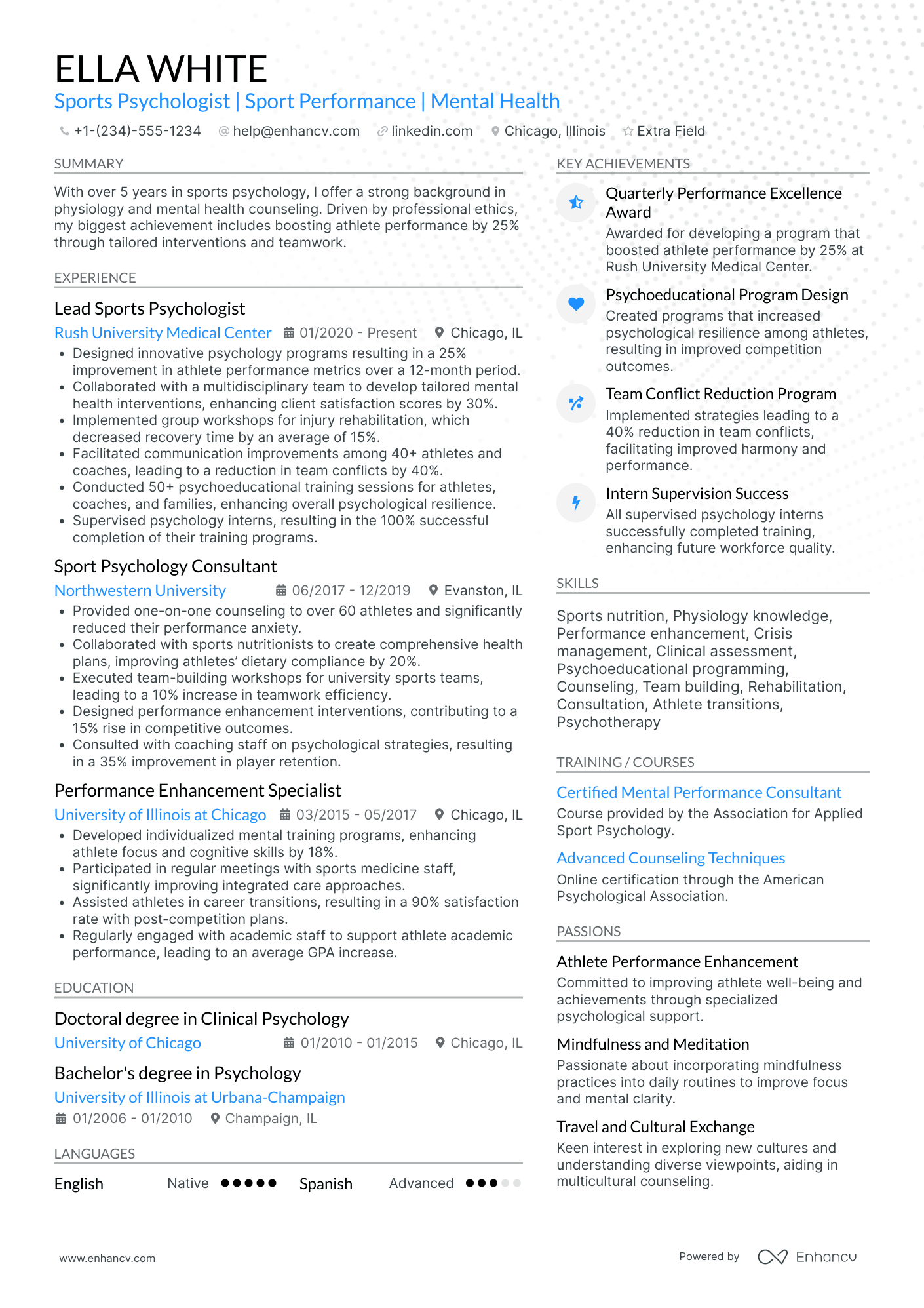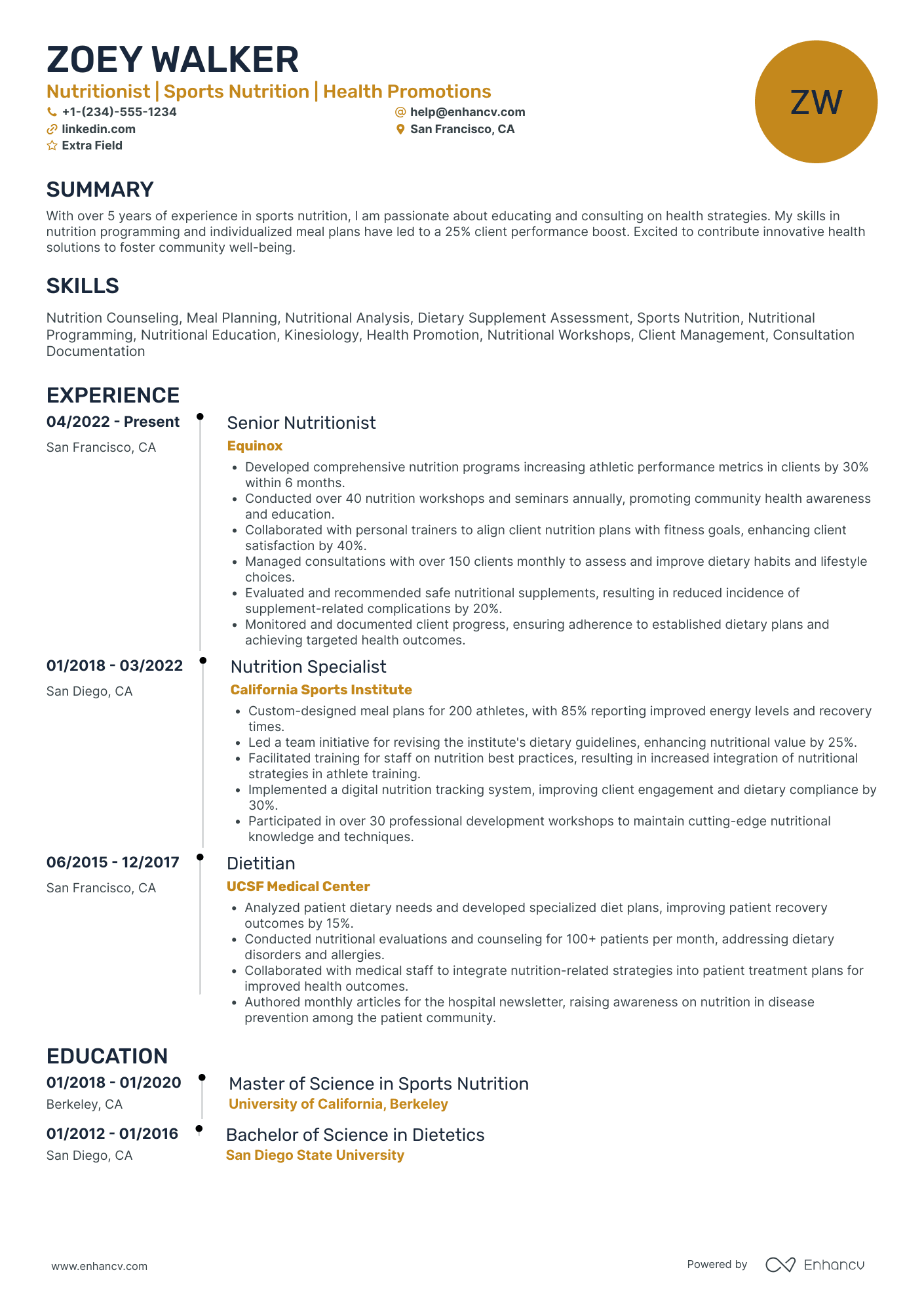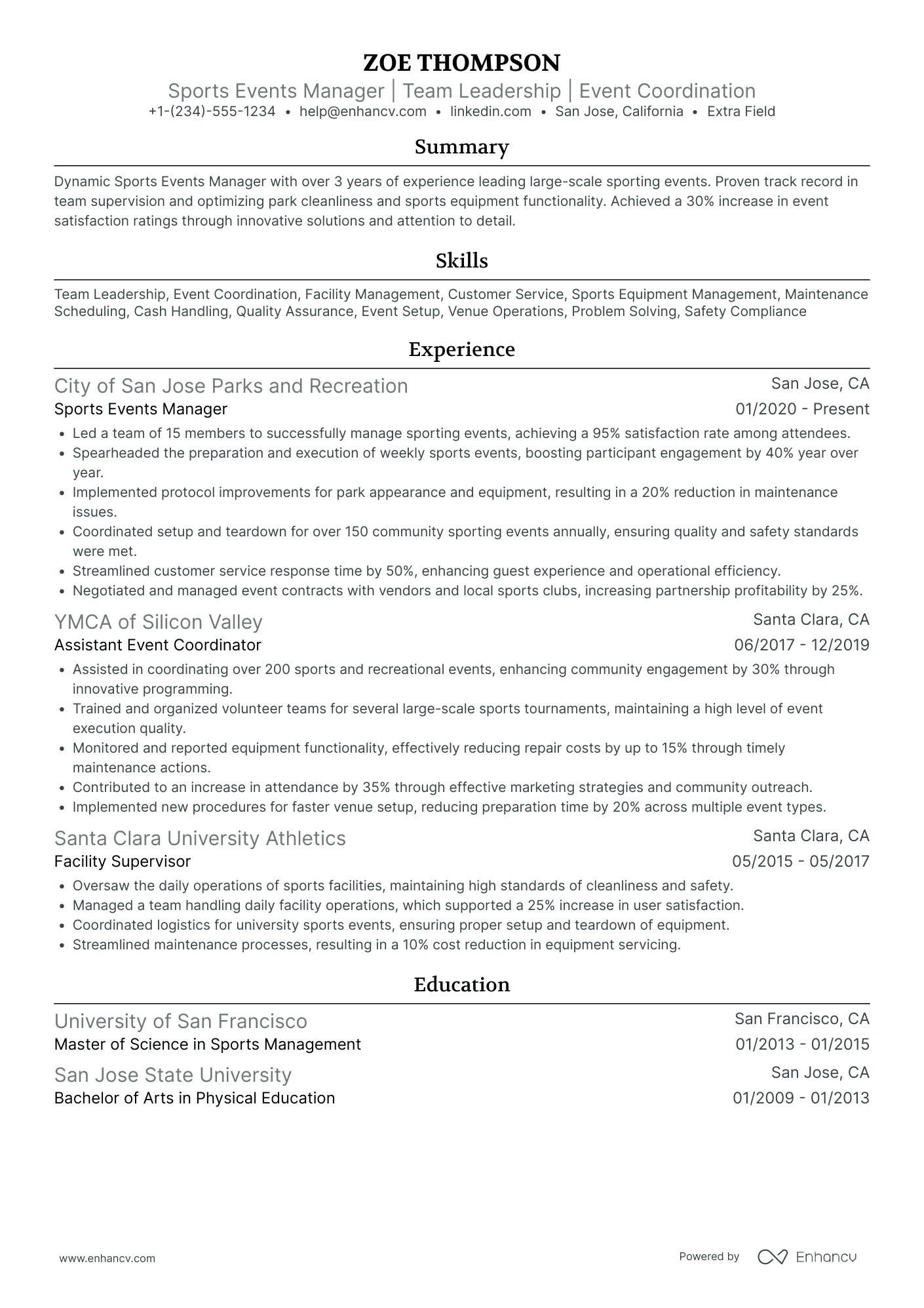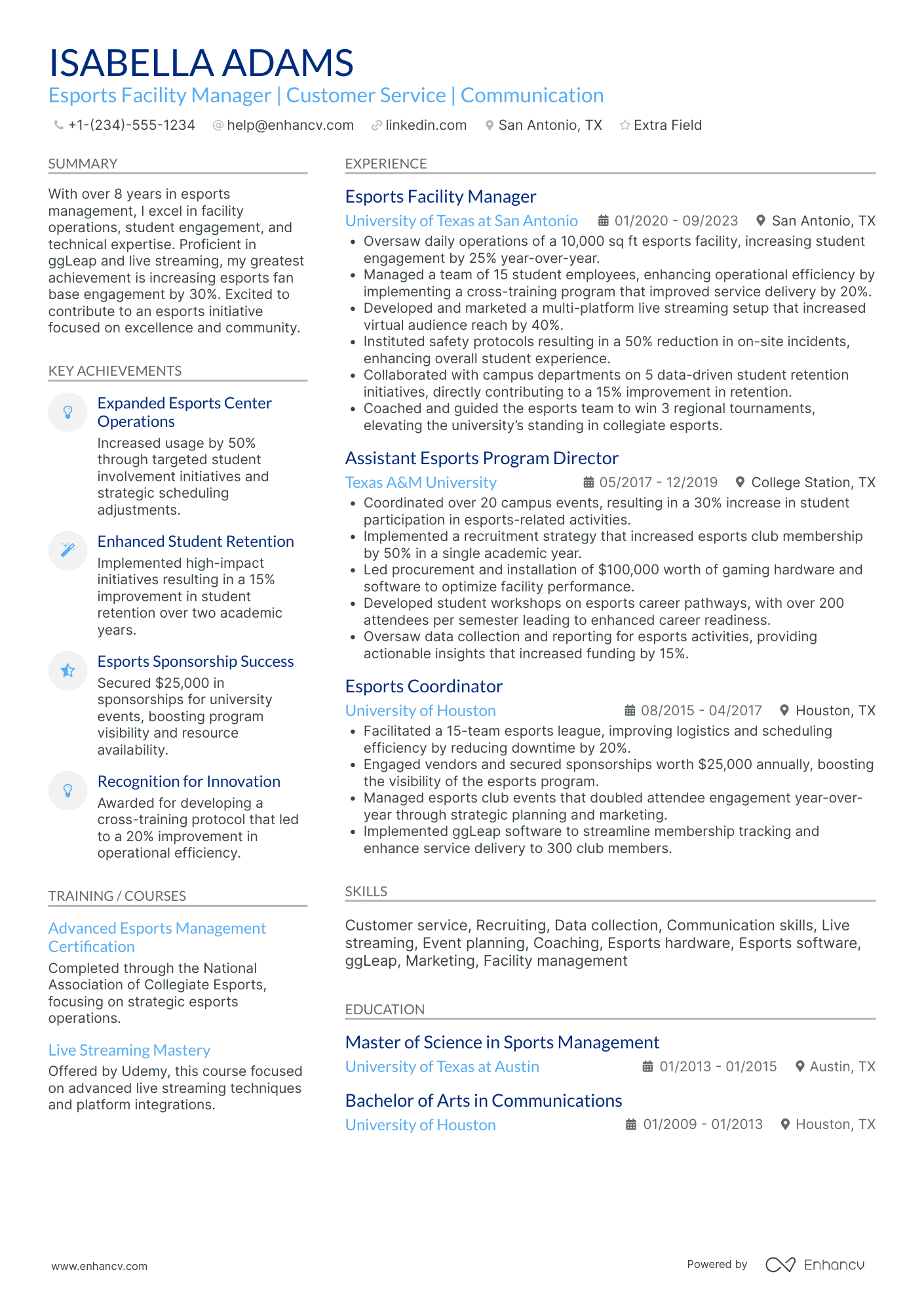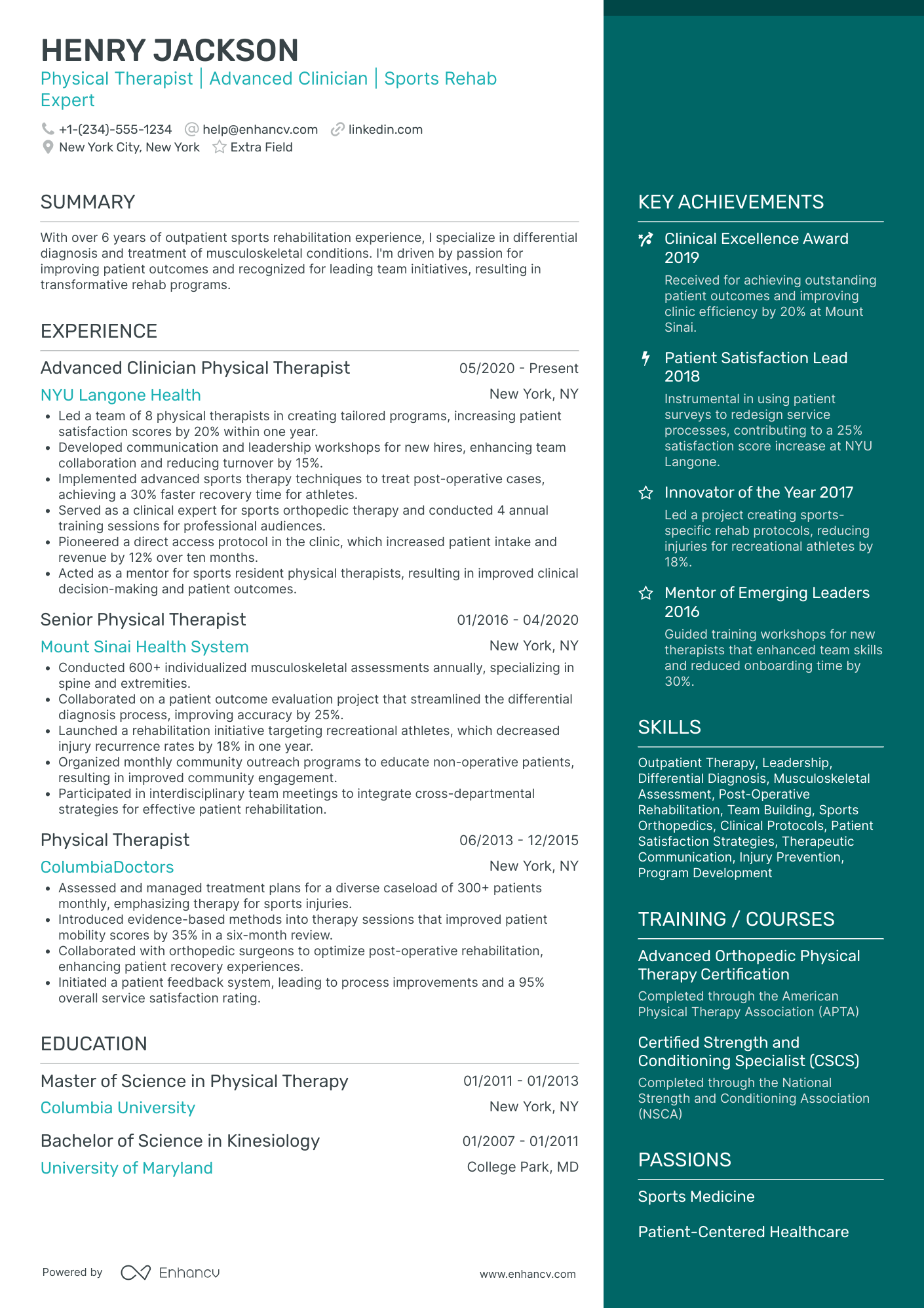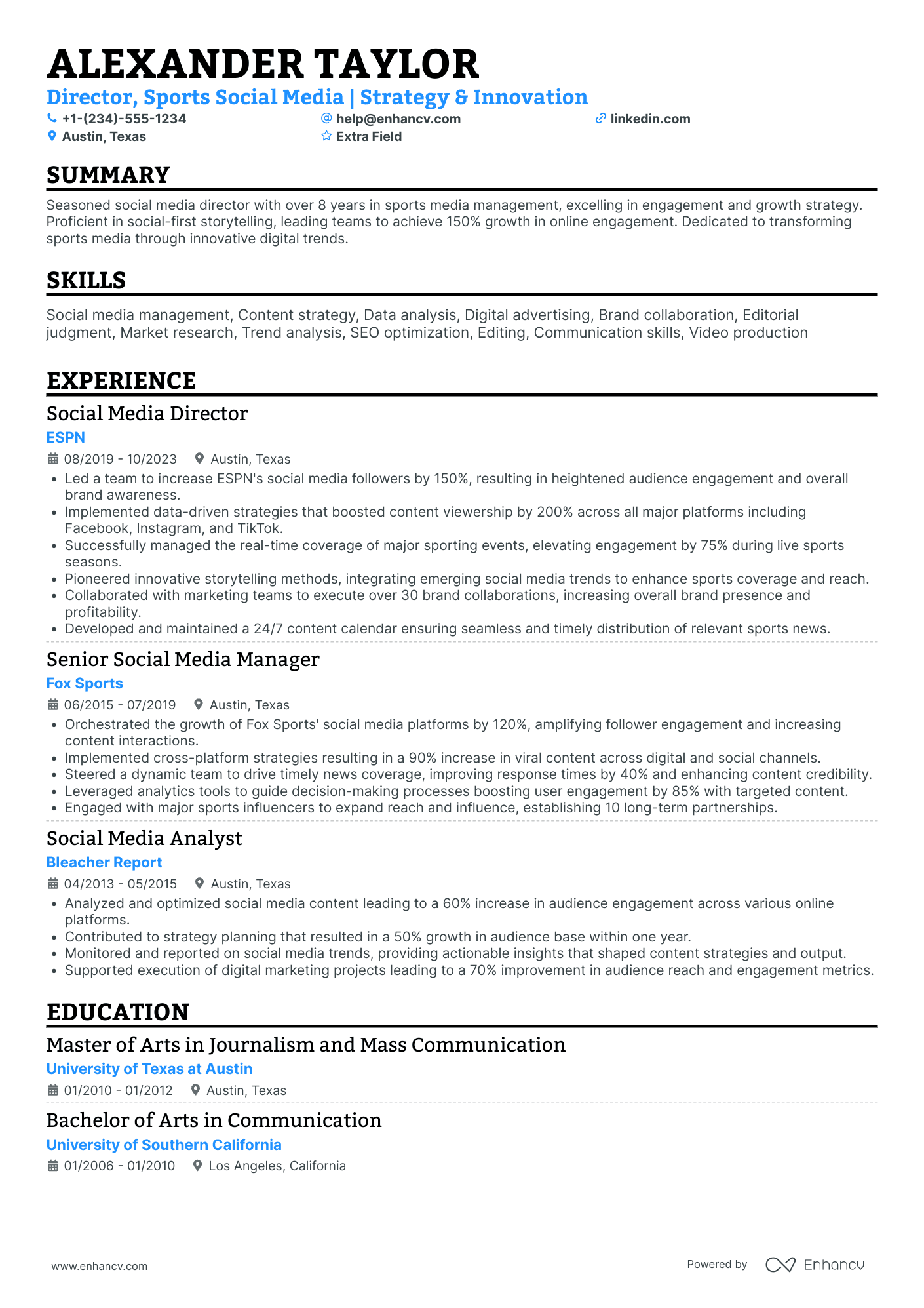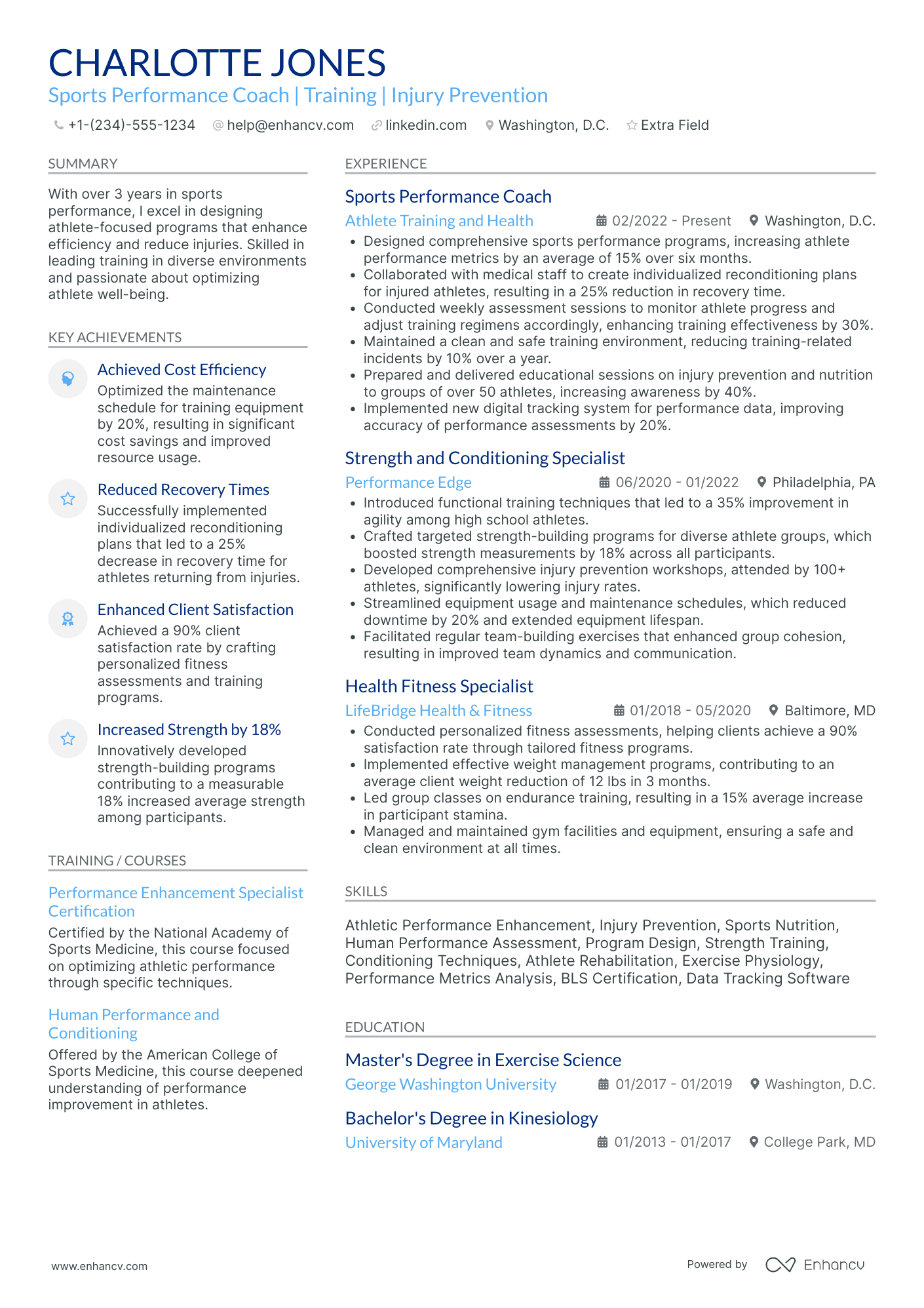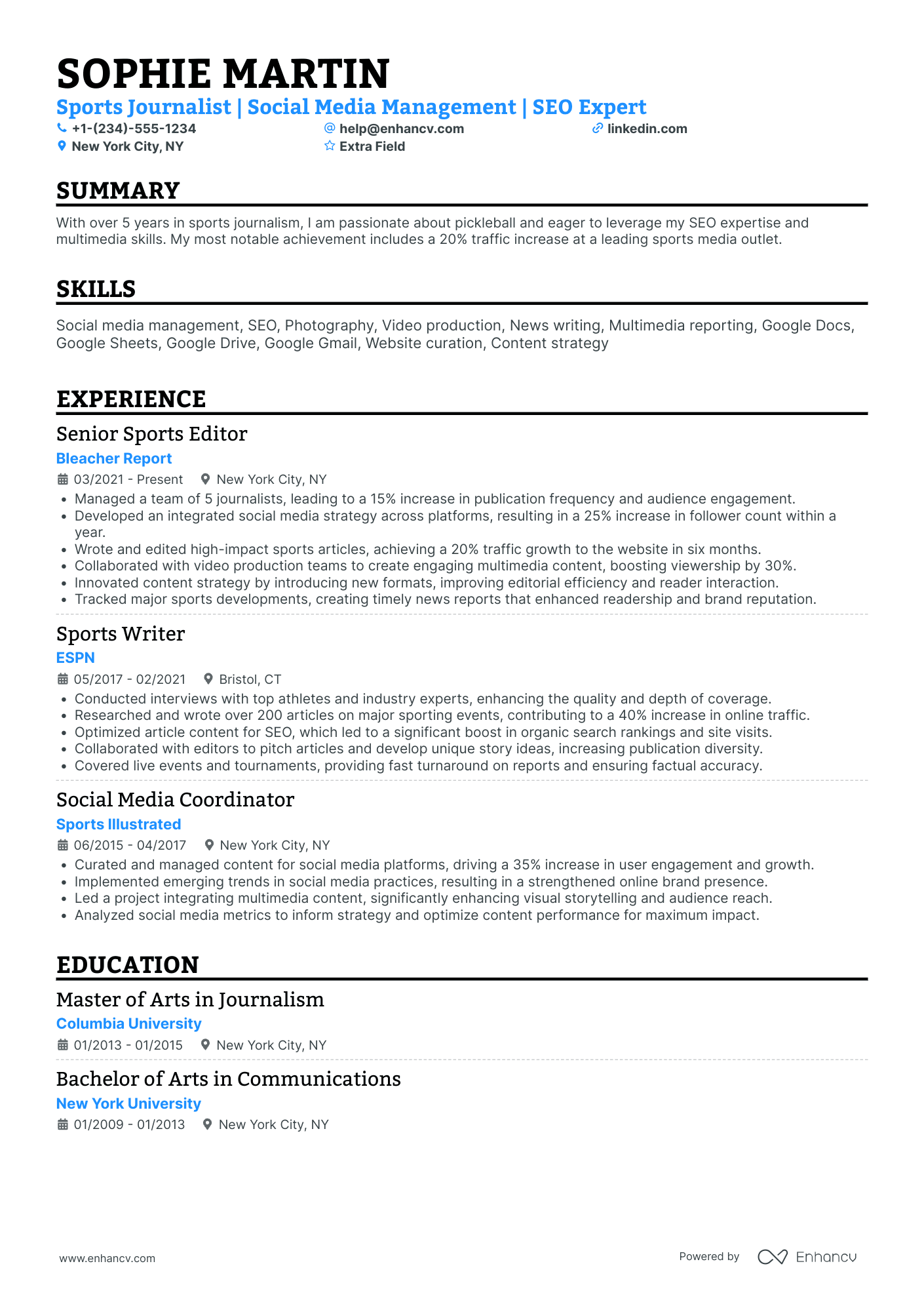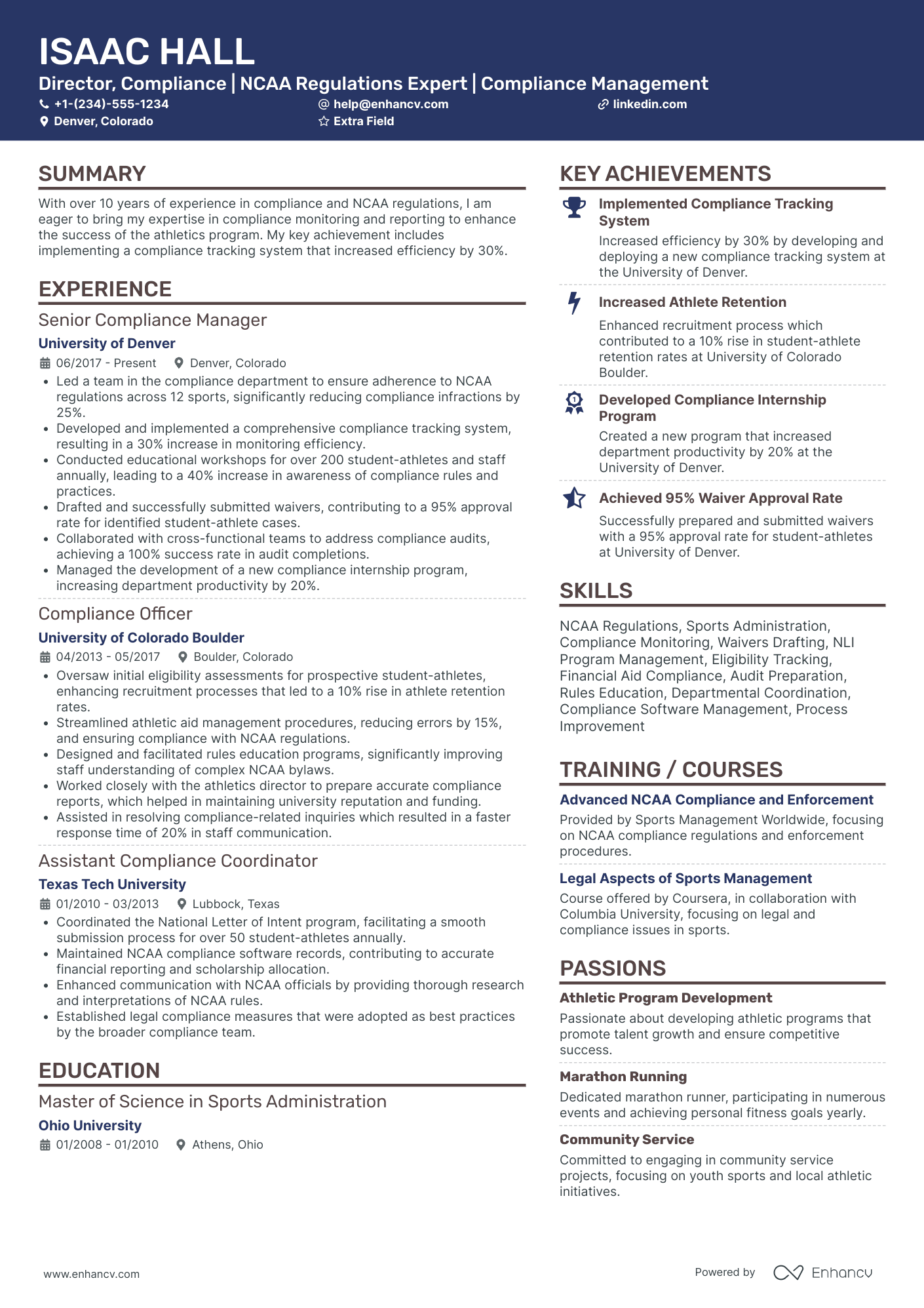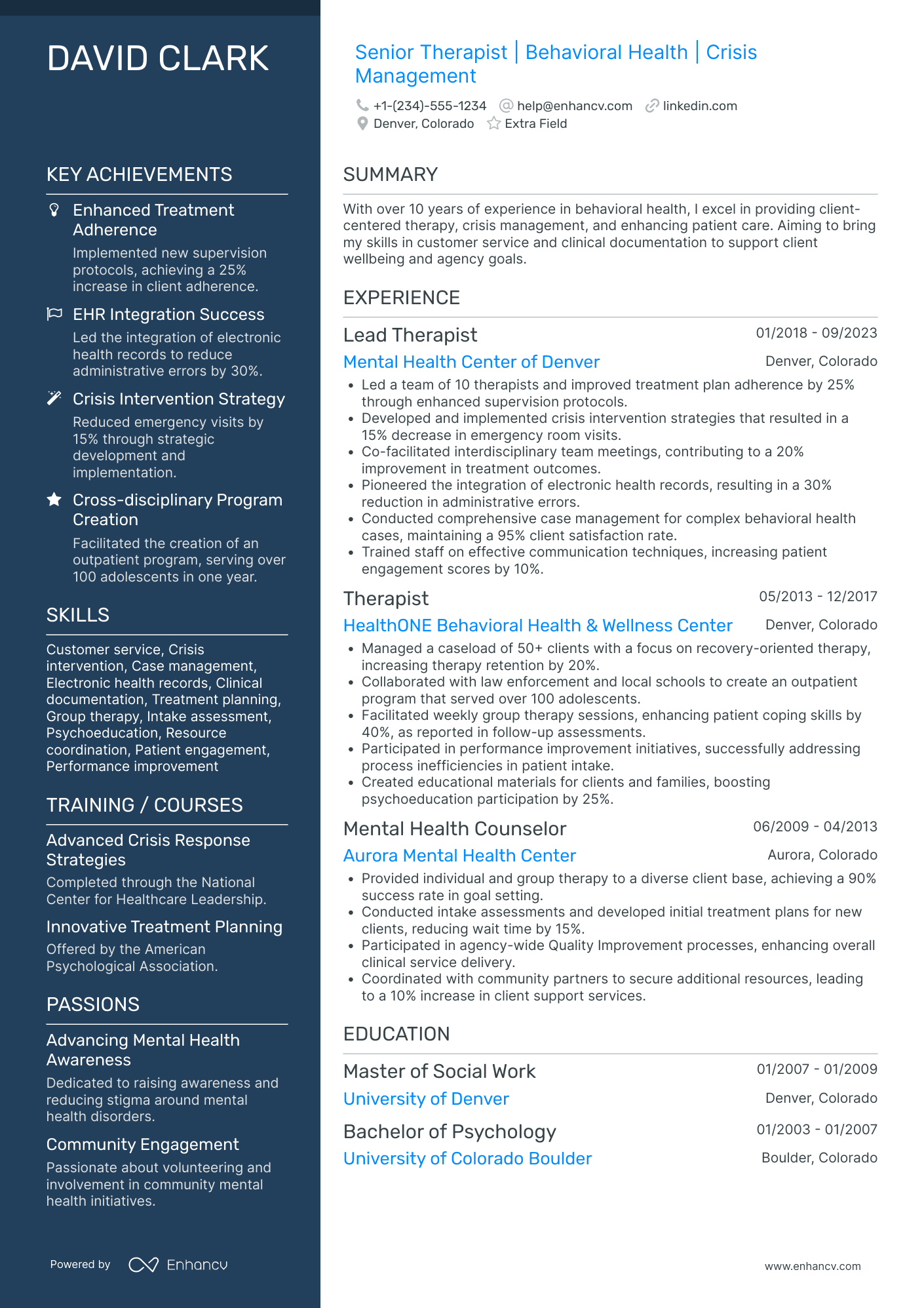Crafting a resume that effectively highlights a diverse skill set is a significant hurdle for professionals in the sports industry. Our resume examples are designed to showcase how you can tailor your experience and accomplishments to stand out to potential employers. Now, let’s explore these examples to help you get started.
Sports resume examples
By Experience
Entry-Level Sports Analyst
Junior Sports Agent
Senior Sports Therapist
Mid-Level Sports Broadcaster
Senior Sports Statistician
By Role
Athletic Director
Athletic Director position has its roots in the athletic coaching and management fields. Therefore, trends in sports management and coaching affect the global trend of athletic direction.
To make an impact while applying for Athletic Director jobs, consider these tips:
- Highlight your experiences with different athletic programs. It could be high school football, college basketball or even community sports programs. These experiences show your competency in managing athletic events.
- On your resume, prioritize your sports management skills. Do not just list them, illustrate how these skills have brought about successful outcomes, such as enhanced team performance or increased game attendance.
- Emphasize your leadership abilities. Most Athletic Directors are expected to lead teams of coaches and athletes. Present instances where you have led teams to success. Remember to use a pattern of “skill-action-results.
- Don't just mention your certification, explain how you've utilized it. For instance, Athletic Administration Certification and how it improved your overall program managing.
Lifeguard
In essence, the Lifeguard position grew from the rescue and swimming instructing disciplines. This explains why trends in these areas impact Lifeguard trends.
For a compelling application for Lifeguard jobs, consider the following:
- Highlight your experience with different lifesaving techniques. Experience in these areas proves your competency in ensuring safety.
- Prioritize emergency medical skills on your resume. Mention any CPR and First Aid certifications you have and how you've effectively used them. Show, don’t just tell.
- Detail your physical conditioning. As a lifeguard, you’ll need to be in top shape. Therefore, list physical activities and sports you participate in that contribute to your physical fitness.
- Just as important are your attention and supervision skills. Provide examples of how you've successfully managed large groups in water areas by using your keen attention to detail.
- Remember the “skill-action-results” approach.
